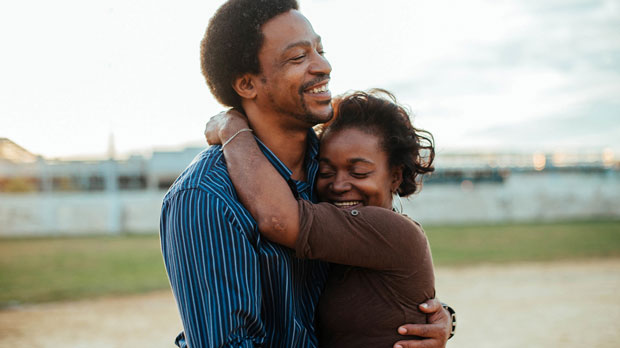 Quest (2017) FRF/Documentary RT: 104 minutes No MPAA rating (mature themes) Director: Jonathan Olshefski Music: T. Griffin Cinematography: Jonathan Olshefski Release date: December 1, 2017 (Philadelphia, PA) Cast: Christopher “Quest” Rainey, Christine’a “Ma” Rainey, Patricia “P.J.” Rainey, William Withers, Price.
Quest (2017) FRF/Documentary RT: 104 minutes No MPAA rating (mature themes) Director: Jonathan Olshefski Music: T. Griffin Cinematography: Jonathan Olshefski Release date: December 1, 2017 (Philadelphia, PA) Cast: Christopher “Quest” Rainey, Christine’a “Ma” Rainey, Patricia “P.J.” Rainey, William Withers, Price.
Rating: ****
Rare is the film that makes you care deeply for its characters. Even rarer is the documentary that makes you care deeply for its human subjects. First-time filmmaker Jonathan Olshefski effortlessly manages this feat in Quest, a documentary that follows a North Philadelphia family over the course of ten years. It started out as a photography project until Olshefski realized the material was better suited for a feature-length film. He struck gold with the Rainey family. A close-knit bunch, they weather their share of tragedy and hardship over the course of a decade but never fall apart. They invite sympathy but never beg for pity. By the end, you feel as though you know the Raineys on an intimate level.
The concept is similar to Richard Linklater’s Boyhood, but Olshefski takes a rather different approach to the story. He doesn’t utilize a year-by-year narrative structure; rather, he marks the passage of time by way of TV news footage of Presidential elections and other significant events (e.g. Hurricane Sandy, Sandy Hook). It’s a clever way to tell the Raineys’ story as it also provides context. It’s fascinating to watch how they grow as the world around them changes.
The main players in Quest are Christopher Rainey, his wife Christine’a, their daughter P.J. and William, a son from a previous relationship. Christopher, aka Quest, runs a recording studio and produces music for promising young artists. He holds “Freestyle Fridays” for locals; they can come in and do their thing at no cost. It’s an alternative to running the streets. His wife, known to everybody as Ma because she’s a natural caretaker, works the overnight shift at a shelter for abused women and their children. We first meet P.J. as an eight-year-old with dreams of being a D.J. (“P.J. the D.J.” her dad jokingly calls her) and watch as she grows into a teen searching for her own identity. Over the next 104 minutes, we stand by their side as they deal with one family member’s cancer and the injury of another due to street violence (innocent victim; wrong place, wrong time). The latter provides the film’s strongest drama especially when we hear this person apologize to Quest for getting shot while lying on the sidewalk.
Earlier I drew a comparison between Quest and Boyhood. It’s a fair comparison and I stand by it. Both films are ambitious and gripping. But Quest has an edge over Linklater’s film. Whereas his movie featured actors playing roles, Olshefski’s film does not. The Raineys are real people living through real situations. Nothing is scripted or rehearsed. What’s even more amazing is that none of them seem the least bit fazed at being filmed. They have a natural presence in front of the camera. They go about their daily lives as though Olshefski isn’t in the room with them (which he is). Even better, the Raineys are likable people. They’re a strong family unit. The parents are decent, hard-working people; the daughter stays away from trouble. William takes care of his young son. They’re not the stereotypical black family you usually see in movies set in the hood.
Street violence is an everyday part of life for the Raineys and their neighbors. Almost everybody has been affected by it to some degree. At one point, they organize a rally in which local religious leaders and even some cops take part. One angry resident asks, “How did Meek Mill and Jay-Z become our leaders?!” It’s a cry from a neglected underclass that too often gets lip service rather than actual action from politicians who only show up in their neighborhood when they need a sound bite.
It’s interesting to watch the social change in Quest. It begins in Obama’s America and ends at the start of the ideologically opposite Trump administration. The look on the Raineys’ faces as he asks African-Americans “What have you got to lose?” during his election campaign says it all. There’s also a scene late in the game of Quest being subject to a random sidewalk search by police while his wife films the encounter on her iPhone. It’s reflective of the time we now live in. It’s not there to incite audiences, but rather to make them think.
For me, the best thing about Quest is that it’s absolutely gripping. You come to know and care about the Raineys as though they are your good friends. You also come to understand what they go through to get by. Both parents work yet they still live in a house with a leaky roof. P.J. doesn’t do without the essentials but like any teen, she wants sneakers and clothes they simply can’t afford. Quest works a side job as a paper boy to make ends meet (yes, he can really throw like that!). Ma quietly worries about money and family matters. She’s no stranger to setbacks as evidenced by the burn marks on her arms. Now that’s quite a story and one that I’ll let you hear for yourself. My only complaint about Quest, as I told Olshefski after a post-screening Q&A, is that I wanted more. He told me that many, many hours of footage went unused. Maybe he can make a sequel or do an extended version. I’d watch it. Quest is one of the year’s best films. Don’t miss it!




